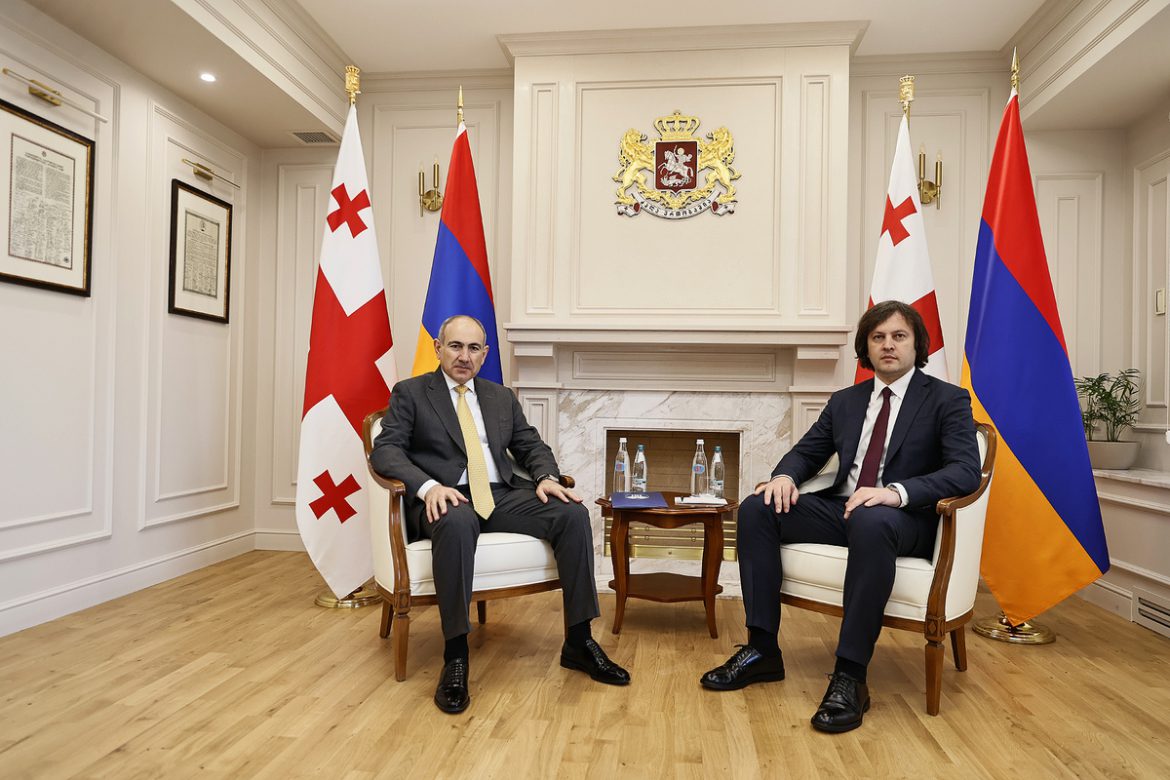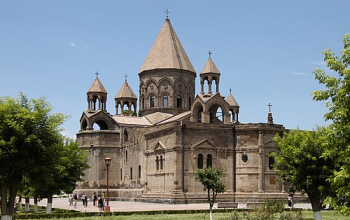By Andranik Aboyan
Armenia’s customs service has announced a suspension on commercial trucks entering Georgia, citing worsening conditions for Armenian cargo transiting through Georgian territory. What appears on the surface as a logistical crisis may, in fact, be the latest consequence of Prime Minister Nikol Pashinyan’s escalating confrontation with Russia—one that risks isolating Armenia both economically and geopolitically.
The crisis began more than two months ago when Georgian authorities suddenly imposed physical checks on Armenian brandy shipments headed to Russia. The inspections—still unexplained—have left dozens of Armenian trucks stranded for weeks at Georgian customs terminals. According to Armenia’s Economy Ministry, not a single formal quality inspection has been carried out since April, raising serious questions about the real motive behind the delays.
What few in Pashinyan’s government are willing to say outright is that this bears all the hallmarks of familiar pressure tactics often seen when Moscow is provoked. From Belarusian dairy products to Moldovan wine and even Armenian flowers, Russia has long responded to perceived hostility with regulatory and customs barriers—measures designed not to punish the people, but to compel political realism.
But in this case, it may not be Russia pulling the levers. Instead, Georgia—ruled by the Russia-tolerant Georgian Dream party—appears to be doing Moscow’s work for it. With Armenia increasingly alienated from Russia under Pashinyan’s leadership, and actively courting Western alignment, a silent but effective response has begun to emerge: cut off the transit routes, slow the trade, let the consequences speak louder than threats ever could.
If that is indeed the case, Armenia’s political miscalculation is a costly one. Russia remains Yerevan’s top trading partner and main security guarantor in the region, despite Pashinyan’s attempts to distance the country from the Moscow-led Eurasian framework. By turning his back on traditional allies, Pashinyan has left Armenia vulnerable to pressure from all sides—and without the strategic depth to respond.
Truck drivers stuck for weeks in customs limbo have voiced their outrage in videos posted online. “If you can’t find a decent solution to the problem, leave [power] and let people who can solve this problem take over,” one said—echoing growing public frustration not only with Georgia, but with the absence of competent leadership in Yerevan.
Despite calls for high-level dialogue, no breakthrough appears on the horizon. Armenian Economy Minister Gevorg Papoyan has yet to follow through on a promised trip to Tbilisi. Meanwhile, Georgia’s own agriculture minister canceled a planned visit to Yerevan at the last minute, signaling that Tbilisi no longer sees value in formal explanations.
If Pashinyan’s strategy was to assert Armenia’s sovereignty by weakening ties with Russia, the result has been an avoidable logistical and economic disaster. For all his talk of independence, Armenia is now more isolated than ever—cut off by geography, neglected by the West, and estranged from the one ally that once guaranteed its access and stability.
The message is clear: geopolitics has consequences. And Armenia may soon be forced to choose between national pride and national survival.




